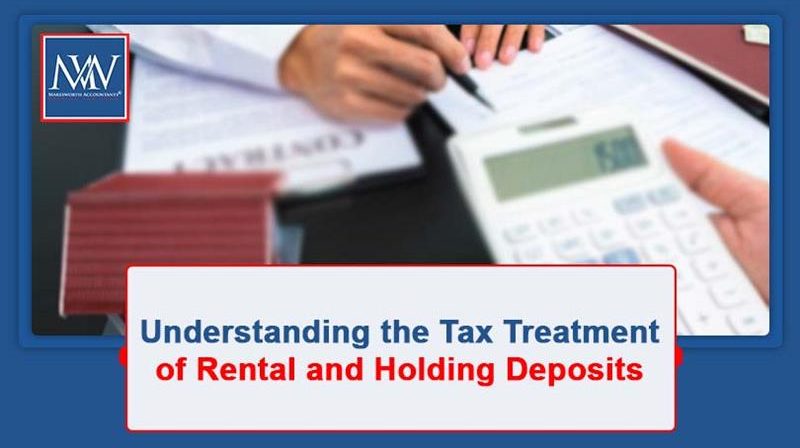
Understanding the Tax Treatment of Rental and Holding Deposits
When renting out a property, landlords usually request a deposit from tenants — often called a security deposit, damage deposit, or rental deposit — to cover potential property damage or unpaid rent. In some cases, a holding deposit is also taken to temporarily reserve the property while paperwork is processed.
Knowing how to correctly handle these deposits for tax purposes is essential for landlords.
Tenancy Deposit Schemes (TDS)
When a landlord collects a deposit to cover damages, the law requires it to be protected under a government-approved Tenancy Deposit Scheme (TDS).
In England and Wales, landlords can register the deposit with:
-
Deposit Protection Service (DPS)
-
MyDeposits
-
Tenancy Deposit Scheme
For Scotland and Northern Ireland, different approved schemes apply.
The maximum deposit a landlord can collect is capped at:
-
Five weeks’ rent for properties with annual rent under £50,000
-
Six weeks’ rent for properties with annual rent over £50,000
When the tenancy ends, landlords must return the agreed portion of the deposit within 10 days. If there’s a disagreement over deductions, the TDS can help mediate and resolve the dispute—provided both parties agree to use it.
Tax Rules for Security Deposits
If a landlord keeps part or all of the security deposit, that amount becomes taxable income under the property rental business.
However, any associated repair or maintenance costs can be deducted as allowable expenses when calculating taxable profit. Sometimes, these expenses may even exceed the deposit retained.
Holding Deposits Explained
A holding deposit is different from a security deposit. It is usually taken when a tenant expresses interest in renting a property and wants it taken off the market while contracts are being prepared.
Key points:
-
The maximum holding deposit allowed is one week’s rent.
-
It does not need to be protected in a TDS.
How Holding Deposits Are Treated for Tax Purposes
-
If the agreement falls through:
The landlord may keep some or all of the holding deposit to cover costs such as administration or viewings. Any amount retained counts as rental income, but related expenses are tax-deductible. -
If the deposit is refunded:
It is not considered income, so it is ignored for tax purposes. However, the landlord may still deduct any associated costs. -
If it’s applied towards rent:
The holding deposit becomes part of rental income and is taxable accordingly. -
If it’s converted to a security deposit:
Then the same tax and TDS rules that apply to security deposits come into effect.
In Summary
Both security deposits and holding deposits have distinct tax treatments, and landlords must handle them correctly to stay compliant.
Security deposits generally become taxable only when retained, while holding deposits can be taxable depending on how they’re used or refunded.
Maintaining clear records and understanding when these amounts become income or deductible expenses helps landlords avoid tax issues and stay on the right side of the law.
For more information, Book a Free Consultation
Need Accountancy Support?
For information on bespoke training, or if you have any other questions for Makesworth Accountant, please fill in your details below
















 151
151